California GOP Turns Against The Tea Party
Another victory for the GOP establishment in its battle against the Tea Party.
In the short run, the battle for the Republican nomination for Governor of California seems like a rather pointless battle. The Republican Party in California is still recovering from the decline that it suffered after Pete Wilson left office, and all indications are that Jerry Brown is headed for a landslide victory in the fall, making him the first Governor in state’s history to be elected four separate times. In the long term, though, the battle between former Treasury official Neel Kashkari and GOP Assemblyman and Tea Party favorite Tim Donnelly, was seen by many as a potentially defining battle in the state GOP’s efforts to regain some level of relevance in state politics and, potentially, a sign for where things may be going in the future for the rest of the Republican Party. Kashkari was backed my much of the national party’s big names, who saw Donnelly’s many controversial statements as something that could have a potentially disastrous impact on down ballot races where Republicans have a chance of pulling out victories. Donnelly, on the other hand, received support from several national Tea Party groups.
In the end, Kashkari pulled out a victory:
SAN FRANCISCO — Neel Kashkari, a former Treasury official and a moderate Republican running for governor of California, won over a Tea Party favorite in the state’s primary elections late Tuesday, and will face Gov. Jerry Brown, who steamrolled to first place Tuesday, in the general election in November.
Mr. Kashkari’s victory over Tim Donnelly, a Republican assemblyman from Southern California, came as a relief to state and national Republican officials hoping to rebuild their party in the nation’s most populous state. Many Republican officials had tried to distance their party from Mr. Donnelly, whose hardline views on issues ranging from guns to immigration are likely to undermine the party’s efforts to reach out to the state’s growing Hispanic population and younger voters.
Mr. Kashkari, who also worked as an investment banker at Goldman Sachs and financed half of his campaign with $2 million of his own wealth, vanquished his opponent when Mr. Donnelly conceded the race to him late Tuesday, with Mr. Kashkari holding the lead with 18 percent of the vote to Mr. Donnelly’s 15 percent.
In a statement after his rival’s concession, Mr. Kashkari said, “My commitment is to rebuilding California’s middle class and re-energizing the Republican Party.”
Mr. Brown, a Democrat seeking a fourth term, garnered nearly 55 percent of the votes and is expected to win the general election in a landslide. In California’s top-two primary system, the top-two vote-getters in a race advance to the general election regardless of party affiliation.
Mr. Brown, 76, whose approval ratings remain at a high and whose campaign account of nearly $21 million dwarfs that of his rivals, said after the primary results were announced, “Someone once told me you win elections the year before.” Mr. Brown listed what he said were his administration’s top accomplishments, starting with a voter-approved tax increase that allowed him to balance California’s budget for the first time in many years.
California has a new, open primary in which the top two finishers move on to the November election.
(…)
Polls had shown the two Republicans in a tight race for second place. Though the contest amounted to securing the opportunity to lose to Mr. Brown in November, as Republicans themselves have acknowledged, it became a referendum on the Republican Party’s identity by pitting Mr. Kashkari, a moderate endorsed by the Republican establishment, against Mr. Donnelly, an arch-conservative championed by the small but highly motivated Tea Party wing.
In a state where the Republican Party’s influence has been shrinking because of its hard-line stance on issues like immigration and same-sex marriage, party officials expressed worries about the prospect of Mr. Donnelly becoming the party’s face.
Mr. Donnelly, 48, a small-business man before he was elected to the Assembly in 2010, founded a chapter of the anti-immigration Minutemen movement in 2005 and patrolled the border with Mexico. A fierce gun rights advocate, he was detained in 2012 after trying to board an airplane with a loaded handgun in his carry-on luggage. Mr. Donnelly, who later acknowledged that the weapon was not registered in his name, said he had forgotten putting the gun in his luggage and pleaded no contest to two misdemeanors.
More recently, Mr. Donnelly tried to link Mr. Kashkari, who is of Indian descent and Hindu, to Islamic fundamentalism. Republicans ranging from Karl Rove to Representative Darrell Issa disavowed Mr. Donnelly and endorsed Mr. Kashkari.
In a debate last month, Mr. Donnelly accused Mr. Kashkari of being an elitist. He said, “We need to bring a lot more country into the country club.”
Mr. Kashkari countered that extremists like Mr. Donnelly had caused the Republican Party’s decline in California. Registered Republicans account for 28.5 percent of California’s voter registration, compared with the Democrats’ 43.5 percent. Democrats hold all statewide offices and control both chambers of the Legislature.
“I think we have very different visions for the Republican Party, and that’s what this election comes down to,” Mr. Kashkari said during a debate, adding, “I want to grow our party.”
Mark Barabak of the Los Angeles Times characterizes this, correctly I believe, as a victory for the party establishment:
Correctly or not, Donnelly’s undiluted, give-no-quarter conservatism was seen as a toxin that would poison the chances of Republicans up and down the ballot; not just those running for constitutional office — several of whom already face steeply uphill contests — but candidates in some potentially competitive house and legislative races, as well.
The damage, many in the party feared, would linger well past the fall and spread far beyond California’s borders.
The state GOP is a wreck, steadily losing hearts and minds since Republican Gov. Pete Wilson won reelection in 1994, thanks in good part to his provocative targeting of illegal immigrants and, later, affirmative action. The incendiary rhetoric sent his party’s reputation up in flames, not just within the growing Latino community but among more moderate white, suburban and young voters as well.
Donnelly picked up where Wilson left off and, on guns and other issues, took the GOP to a much further extreme. The former governor, who is still viewed affectionately within his party, was among those who notably condemned the San Bernardino-area congressman, calling him unfit to serve. Behind the scenes, Wilson played an important role in drawing other prominent Republicans to back Kashkari.
Shut out of statewide office, largely impotent in Sacramento and saddled with a retrograde image, the GOP probably faces years of rebuilding in this, the nation’s largest, most important state. (With 55 electoral votes, California, by itself, offers more than one-fifth the total needed to win the White House.)
Kashkari’s candidacy, at the very least, offers the party a place to start.
The race between Kashkari and Donnelly didn’t get as much national press attention as other “Tea Party v. Establishment” battles that have taken place in GOP primaries this spring mostly because of the fact that nobody reasonably expects whoever won the race to have much of a chance against Jerry Brown in the fall. By all indications, that is a fair assessment. At the same time, though, the differences between the two were perhaps even more stark than those presented by races in places like Kentucky, Texas, or Mississippi, and for that reason alone it perhaps deserved more attention than it actually got. California, after all, is a state that has been known to set trends for the nation in many areas for some time now, so what happens to the GOP there should be of at least some passing influence on the party as a whole. Indeed, win or lose I except that we will see much of Kashkari on the national GOP scene after November 2014 and leading up to the 2016 elections.
Perhaps more importantly, when pundits sit down at the end of the 2014 primary season and start tallying wins and losses, it will be fair to count the Kashkari victory as a win for the GOP establishment against the Tea Party along with the others that it had tallied up in Alabama, Texas, Kentucky, and North Carolina and the ones it is likely to win in Kansas and South Carolina in the coming weeks. As we head into 2016, that could have a significant impact on the direction that the GOP takes on the national stage. Even if Republicans manage to win back the Senate this year, it seems clear that the Tea Party has seen its influence crest, and this defeat in the nation’s largest state is certainly a large part of that.
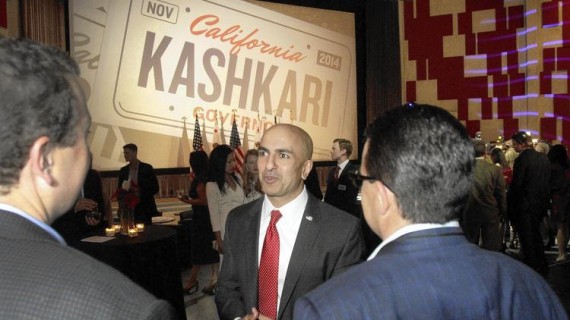

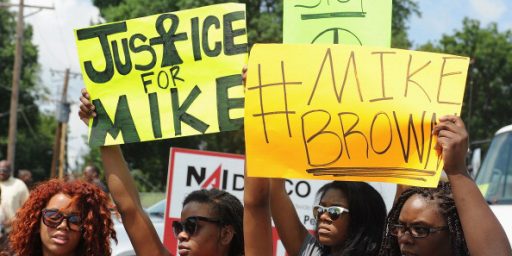
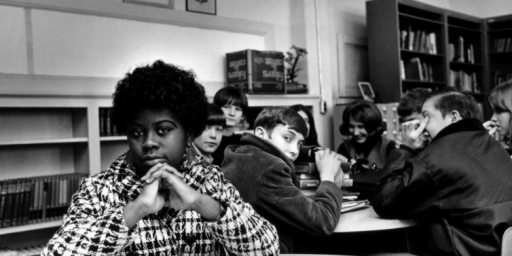
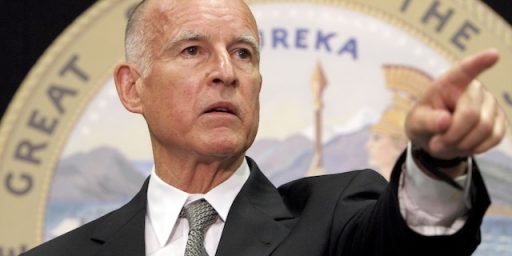
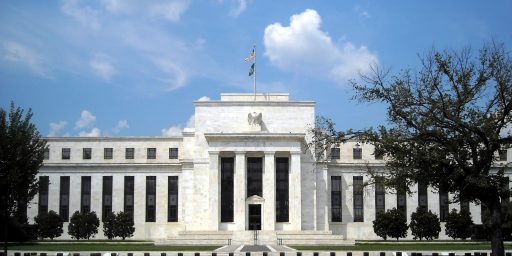
Perhaps the establishment is beating back the Tea Party. I’m not going to look up Donnelly’s funding, but typically there’s a heavy Koch, Norquist, Club for Growth (sic) etc. presence. The TP was never the pure grassroots insurgency people claim. This has been one wing of the R establishment against another. Did the insurgents lose, or did they win? Does the TP loss indicate a resurgence of the old establishment? Or are the insurgents now solidly part of the establishment and setting aside their anti-establishment pretensions?
And let’s remember that that TP didn’t bring us Reagan’s deficit, Bush’s deficit, or the other Bush’s deficit. They didn’t bring us the Reagan recession, or the Bush recession, or the other Bush recession. They didn’t fail to fund Medicare Part D. They didn’t steal from SS to fund two mismanaged wars. The TP didn’t flaunt the Geneva Convention and torture prisoners. And they didn’t cause the ’08 collapse. Before we rejoice over the Republican Party returning to sanity, let’s remember what a supposedly sane Republican Party looked like.
Jerry Brown will win by 20 points. We Californians love us some Governor Jerry.
21st Century Jerry Brown isn’t nearly as entertaining as 70s Jerry Brown was, though.
Jerry Brown is the perfect governor for California – he is a pragmatist and he’s cheap.
In Sacramento he’s usually the only adult in the room. His fiscal philosophy is to pay for the government we have. People on the right criticize him for not reducing taxes, however he has managed to stabilize California’s budget situation. Frankly, Jerry Brown is the best Democratic governor that Republicans could have hoped for.
When Kashkari loses, I guarantee you that the Tea Party will claim that Donnelly would have beaten Brown in a landslide.
Hasn’t the GOP of any persuasion become irrelevant in California? California is Massachusetts west-where the GOP pretty much never wins anything.
@Just Me:
Until the GOP went all in on the culture war stuff, they used to win the governorship and many statewide positions.
Today, the highly populated coastal zone: from San Francisco down to Los Angeles are very liberal, and Orange County and San Diego, long very conservative areas, are becoming much more moderate. The only highly populated area of California that votes conservative is the agricultural Central Valley, yet even there the immigrant Latino population is pushing the vote toward the middle.
Part of the reason the GOP is marginalized in CA today is because of the Republican focus on culture war issues, and some of it is definitely demographics.
@al-Ameda: You’re wrong. Blah blah blah, one party state, blah. Blab blah blah, blah blah blah!
[Editor note: Parodying commenters is OK, but *do not* directly spoof names. I.e. don’t post as “Superdestroyer” if you’re not him.]
@Just Me: They used to win elections. Remember Reagan? Remember what state he was from?
(That was, of course, before the Republican Party of California decided to take out a shotgun and aim at both feet.)
@al-Ameda: The left coast is not as liberal as the midwest and south assume (and fox news caricatures). A classic west coaster is pro-capitalist, pro-military (usually, historically lots of defense jobs on the west coast) and libertarian socially. Look at silicon valley (birthed by an electronics industry that thrived on defense contracts), look at the biz model of hollywood (extremely market driven). As for the PNW, a bunch of peace and love hippies are not going to give you world domination like you see with Microsoft, Starbucks and Amazon.
But the pro-biz, socially liberal is now called RINO and has been purged from the repubs. So what use to be very competative for repubs (it was the dems who would sometimes nominate the left wing version of the wild eyed utopians we see in the tea party today) is now solid blue.
CA result is all about the top 2 primary system. If the states in which the tea party won had top 2 primaries instead of partisan primaries, the tea party would have lost there too.With to 2, you get more mainstream and moderate canidates. Which is why voters like it and political hacks HATE it.
Perhaps another reason California hasn’t elected a Republican to any major position in a long time…
Meanwhile, it’s so obvious the GOP in California got smoked the minute it became the anti-Hispanic party…national Republicans should learn a lesson from that…
@Doug Mataconis:
I know, he doesn’t even date rock stars any more.
@jib:
Is that necessarily so? It’s really just first-past-the-post, except it has two rounds. You can still win by smearing others. I’ve always liked the approval voting system which allows voters to voice approval or disapproval on every candidate, which decreases the incentive for negative campaigning, and also you can get those candidates that please broad majorities…but does top two do that? I’m not sure.
I will say I prefer it as a slight improvement over the current system. Just as long as everyone is allowed to run and parties don’t shut candidates out.
@gVOR08:
Ehhh….the takeover was pretty early, but I do think that for at least the first 4-6 months after Santelli’s Rant it was as “pure” as one can hope for the United States. But you’re right, it was jacked by party operatives fairly early on.
Same thing happened with Occupy Wall Street, too.
So let me get this straight: this guy just blew a cool $2 million of his own money to basically have the “honor” of getting totally creamed in November by the incumbent Democrat? Unless this is really just a massive downpayment/investment on a long-term remarketing program for the California GOP and this guy really cares about that…why?
I mean, I guess he’s rich. I dunno, I’ve never looked at the guy’s tax receipts. But it still seems like a waste of money. I’d rather donate that to the research team working on 3D printing organs or a group working on building orbital space colonies (or Gundams).
The GOP doesn’t really stand a chance until it ditches the social conservatives and the theocons, basically takes a libertarian bent, and on the economic side of thing changes from being just pro-business to actually being pro-market and taking a stand against corporatism. Which might happen if they listen to Tim Carney…
@Jeremy: It does because the moderates pull people from the center and other side of the aisle. WIth partisan primaries, the bulk of the voters are futher to the right or left than the general election. But in a top 2, the political mix of the election is almost exactly what you see in the general. There is a lot of ticket splitting in a top 2 because there really is no ticket to vote straight for. If your in a deep red district you will want to run to the center in order to pick up moderates and dems. And they do vote for repubs in top 2 primarys. In CA, you have actually had sitting repubs in primaries brag about the votes they have taken IN SUPPORT of Obama.You would never see that in any partisan primary.
In WA I dont think any tea party canidate has cracked the top 2 in any federal primary and few have in the state primaries. The very liberal and conservative incumbenets keep winning so it has not changed that much. But there were several high visibility tea party votes in the house this last sesssion where some of the newer repubs from WA voted againist the repub party. You would not have seen that if WA had a partisan primary
@Jeremy: Often the biggest impact in ‘moderation’ is with the second place finisher. With gerrymandering, the districts are pretty set. In top 2, you usually have a liberal or conservative win the district primary (depending on how it was set up) but the second place person is often a moderate. So far in WA we have not had 2 dems or 2 repubs finish 1 and 2 and face each other in the general but it is coming. And when it does, the more moderate of the 2 canidates will be the favorate. This will probably happen in safe party district that is open. Maybe this year it will happen in WA 4th where Doc Hastings is retiring. It would mean that the partisan count would not change, a repub will replace a retiring repub but the new repub will be much less conservative than the retiring repub (granted Doc Hastings is VERY conservative and it is pretty much a given that whoever replaces him will be less conservative)